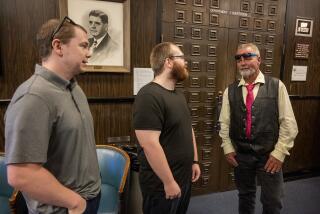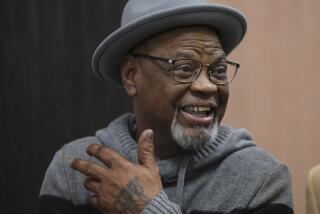Judge Overturns Conviction in Memory Case
- Share via
SAN FRANCISCO — A man convicted in a 20-year-old murder, due in part to his daughter’s recovered memory of seeing him strike her playmate, was granted a new trial Tuesday by a judge who said the first trial was unfair.
George Franklin Sr. of San Mateo was convicted of first-degree murder in January, 1990, for the 1969 slaying of 8-year-old Susan Nason, his daughter’s childhood friend. He was sentenced to life in prison.
The killing was unsolved until Eileen Franklin-Lipsker said she was looking at her own daughter in January, 1989, and remembered seeing her father raising a rock above Susan’s head. She was the main witness against him.
U.S. District Judge D. Lowell Jensen cited inadmissible evidence of a purported confession in overturning the conviction. “This verdict was the product of a trial which was not fundamentally fair,” Jensen said.
The judge said jurors should assess repressed memory testimony like any other recollection of a witness, but it was unfairly bolstered in this case by improper and misleading testimony that Franklin had admitted the killing.
The ruling “states the obvious--you can’t lie to juries,” Franklin’s appellate lawyer, Dennis Riordan, told reporters.
If Franklin is retried, Riordan said, a conviction would be unlikely because of increasing public skepticism about repressed memory cases.
Matt Ross, a spokesman for Atty. Gen. Dan Lungren, declined comment on whether the state would appeal the ruling.
In overturning the conviction, Jensen cited a jailhouse visit to Franklin by his daughter, which a prosecutor had helped to arrange.
Franklin-Lipsker testified that during the visit she referred to her father’s guilt and asked him to confess, but he silently pointed to a sign that said conversations might be monitored.
San Mateo County Superior Court Judge Thomas McGinn Smith told jurors that they could consider Franklin’s silence as a possible admission of guilt.
A state appeals court ruled in 1993 that the evidence should have been excluded because Franklin was relying on his right against self-incrimination. But the court upheld the conviction, saying that Franklin would have been found guilty anyway based on his daughter’s testimony.
But Jensen said he could not determine beyond a reasonable doubt that jurors would have convicted Franklin based solely on his daughter’s testimony.
More to Read
Sign up for Essential California
The most important California stories and recommendations in your inbox every morning.
You may occasionally receive promotional content from the Los Angeles Times.










